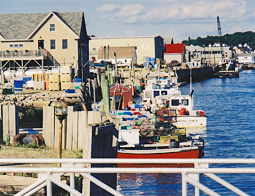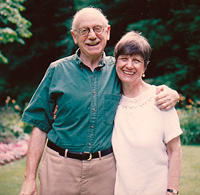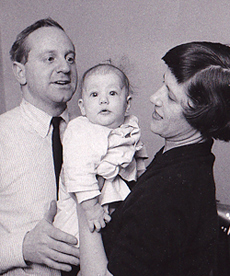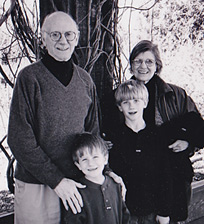
 |
 |
 |
 |
 |
 |
 |
 |

 Mark Perlberg’s first family lived in a small New Jersey town near the Palisade cliffs, across the Hudson River from New York City. Mark's father Emanuel Perlberg was a prosperous dental surgeon; his mother Rene was the daughter of immigrants. Rene’s father Ivar (who figures prominently in Perlberg’s poems) was a Swedish Jew, highly educated in Europe but unable to make a living in his new country.
Mark Perlberg’s first family lived in a small New Jersey town near the Palisade cliffs, across the Hudson River from New York City. Mark's father Emanuel Perlberg was a prosperous dental surgeon; his mother Rene was the daughter of immigrants. Rene’s father Ivar (who figures prominently in Perlberg’s poems) was a Swedish Jew, highly educated in Europe but unable to make a living in his new country.
Rene bitterly resented that she didn’t have the educational opportunities her father had enjoyed, but her prospects with Emanuel were good.
The couple had three children: Mark was born in 1929 between his brother Paul and sister Helene. The family lived a luxurious life, but was wholly unprepared for the Great Depression, and when Emanuel died suddenly when Mark was 5, he left the family in distress.
Rene was left with huge debts and three small children. She saved her family and provided her children with college educations by buying houses in disrepair, fixing them up, and selling them. Mark moved 13 times before graduating from high school.
 Rene was also able to escape the summer heat by taking the family to Peaks Island, a small, rustic fishing and lobstering island off the coast of Maine. These summers were among the most formative experiences of Mark’s life. He explored the seashore and the woods, and he came to know and love the people of the island. Later he wrote of his Peaks Island roots in a seven-poem sequence “The Burning Field,” which appears in his book of the same name and in his final volume.
Rene was also able to escape the summer heat by taking the family to Peaks Island, a small, rustic fishing and lobstering island off the coast of Maine. These summers were among the most formative experiences of Mark’s life. He explored the seashore and the woods, and he came to know and love the people of the island. Later he wrote of his Peaks Island roots in a seven-poem sequence “The Burning Field,” which appears in his book of the same name and in his final volume.
Rene eventually remarried a friend of Emanuel’s—Harry—who is also an important character in Perlberg’s poems. Harry joined the family on Peaks Island, and figures in poems such as “Buying Fish in Portland” and “Baking Out” in The Feel Of The Sun.
Mark went to Hobart College in Geneva, New York. He blossomed away from his mother’s supervision and conflicts at home. He decided to be a writer. He was encouraged by winning prizes and support from caring professors, some of whom became his lifelong friends. He graduated in 1950 and continued his studies at Columbia, where the poet and critic Mark Van Doren had assembled a group of talented students including Allen Ginsberg, John Berryman, and John Hollander.

Mark met his future wife, Anna Backer, at Columbia in a class taught by Lionel Trilling. Anna was a history student from Barnard College. She, her parents, and two older brothers had fled Prague 11 years earlier. Her mother, Julia Nessy, was an opera singer, and her entire family was devoted to the arts. Mark found a congenial partner.
When the Korean War broke out Mark was not eager to fight, but the alternative, academic life, was also unappealing to him. He dropped out of graduate school and was drafted. Anna was teaching at a private school in Connecticut. He called her and proposed long distance. They were married in February, 1953, had a ten day honeymoon, and separated—he to Korea, she back to teaching. And then another momentous long distance phone call: Mark was being transferred to Tokyo to work for the Army newspaper, Stars and Stripes. Did she want to come to Japan? She did, and they started their married life in Tokyo. Their highly successful marriage lasted over fifty years.
Mark had loved Chinese and Japanese literature, so the two rented the wing of a Jaganese style house in a Tokyo suburb and immersed themselves in the culture, traveling as much as they could. “You sang lieder with our student-guide in Kyoto/eight years after Hiroshima,” Mark wrote later in his poem “The Floating World.”

In the sixties Mark moved to The World Book Year Book. He did a long interview with Rose Kennedy and wrote a memorable piece on wolves. Eventually, he moved to Encyclopedia Brittannica, where a new and much touted edition was in progress. His next job was with Prism, a magazine on the sociology of medicine published by the AMA. He free-lanced as well, writing an article on Heinz Kohut, the psychoanalyst, and several in the field of gerontology.
Journalism—reporting and editing—was how he supported his growing family. Their first daughter, Katherine Eve, was born in 1957, followed by Julie Anna in 1960.
 In the early seventies the Perlbergs bought a summer cottage on Vinalhaven, an island off the mid-coast of Maine, an hour and a half by ferry from the town of Rockland. The family returned to Maine summer after summer.
In the early seventies the Perlbergs bought a summer cottage on Vinalhaven, an island off the mid-coast of Maine, an hour and a half by ferry from the town of Rockland. The family returned to Maine summer after summer.
In the seventies, he and Anna became involved in Chicago politics, participating in the small but vocal group of independents on Chicago’s north side who opposed the Richard J. Daley machine and fought for greater accountability and citizen participation in government. They took part in electoral politics and backed several winning candidates.
Mark also stayed an active contributor to the Chicago community of poets, notably through his work with The Poetry Center of Chicago and Newberry Library workshops.

Mark and Anna’s daughters grew up, graduated, and started their own careers. Each married and had two boys. Mark loved his expanding family and the visits, cross-country trips, and joint holiday celebrations. Some of these experiences also found their way into his poems.
In 1995 Mark underwent double by-pass surgery and took early retirement from his last job as Director of Publications at Rotary International. He spent his time writing, reading, and continuing to teach at the Newberry. Anna, after three more years as director of an agency for the blind, retired in 2000 to be with Mark.
In early 2008, Mark’s leukemia reached a crisis stage. He died on June 23. It was after his death that Anna used his notes to assemble Theater Of Memory: New and Selected Poems of Mark Perlberg.
Life | Writing | Books | Theater of Memory | Poetry Center | Teaching | Contact | Home
